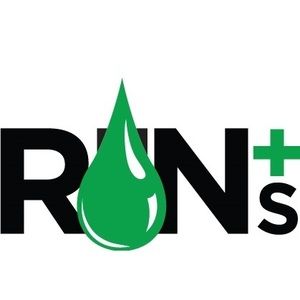Small refineries petition EPA to restructure its RIN trading program

January 26, 2024
Two small refineries owned by CVR Energy Inc. are asking the U.S. EPA to initiate a rulemaking to restructure its renewable identification number (RIN) trading program under the Renewable Fuel Standard to limit the parties who can participate. The refineries claim that the current RIN trading program has led to market manipulation and increased fuel costs.
CVR Energy CEO David Lamp on Dec. 28 sent a letter to EPA Administrator Michael Regan on behalf of two small refinery subsidiaries of CVR, Coffeyville Resources Refining & Marketing LLC and Wynnewood Refining Co. LLC, requesting the agency begin a rulemaking process.
The letter alleges that the RIN trading program created by EPA unlawfully allows any person to participate—“including entities participating in the market purely for profit.” According to Lamp, the existing RIN trading program has led to “gross market manipulation and caused RIN prices to skyrocket from pennies at the outset of the program, to more than $2.00 in 2022.” Lamp also said high RIN prices caused by the current RIN trading program have inflicted disproportionate economic harm on many small refineries.
Advertisement
According to Lamp, a reformed RIN program would drive down the cost of RINs by minimizing the potential for market manipulation by non-obligated parties. He also claims that the requested reforms would lower the cost of transportation fuels; mitigate/eliminate the disproportionate economic harm to small and merchant refineries; and minimize lawsuits against EPA.
Within the letter, Lamp also points out that the RFS RIN credit program is different from EPA’s other fuels credit trading programs, including those for ultra-low sulfur gasoline (ULSG) and mobile source air toxics (MSAT) despite the fact that the statutory provisions created the MSAT credit trading program are essentially identical to the RFS statutory provisions.
Advertisement
Related Stories
President Trump on July 4 signed the “One Big Beautiful Bill Act.” The legislation extends and updates the 45Z credit and revives a tax credit benefiting small biodiesel producers but repeals several other bioenergy-related tax incentives.
CARB on June 27 announced amendments to the state’s LCFS regulations will take effect beginning on July 1. The amended regulations were approved by the agency in November 2024, but implementation was delayed due to regulatory clarity issues.
SAF Magazine and the Commercial Aviation Alternative Fuels Initiative announced the preliminary agenda for the North American SAF Conference and Expo, being held Sept. 22-24 at the Minneapolis Convention Center in Minneapolis, Minnesota.
International Sustainability & Carbon Certification has announced that Environment and Climate Change Canada has approved ISCC as a certification scheme in line with its sustainability criteria under its Clean Fuel Regulations.
Legislation introduced in the California Senate on June 23 aims to cap the price of Low Carbon Fuel Standard credits as part of a larger effort to overhaul the state’s fuel regulations and mitigate rising gas prices.
Upcoming Events









